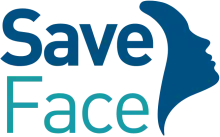Over the past few years, there’s been an onslaught of TV programmes detailing the ins and outs of the cosmetic industry. From factual documentaries to farcical reality shows, it’s becoming difficult to turn on the television without coming across something claiming to give you the hard facts about both surgical and non-surgical cosmetic procedures.
Here at Save Face, we’re undecided as to what we think the effects of this rise in ‘TV treatment’ will have on the general population. Do TV shows such as Channel 4’s How Not to Get Old trivialise non-surgical cosmetic procedures? Does touting these procedures as an inevitable next-step drive those on a budget into the arms of amateur practitioners offering cheap and dangerous treatments?
Concerns for Consumer Safety
It’s certainly possible. These programmes which offer to ‘guide us through the maze of youth-boosting processes and procedures’ are heavily edited to make them palatable to those at home. Watching one of your favourite celebrities undergo a quick burst of laser therapy is certainly not the same as doing it yourself, but it could inspire a subconscious urge to imitate their behaviour without carefully considering the facts.
At Save Face we think it’s vital that anyone thinking of undergoing a non-surgical cosmetic procedure understands that these are real procedures with real side-effects and risks of complications – especially when carried out by amateurs.
However, on the other side of the coin there’s also a glut of programmes that focus more exclusively on procedures gone wrong.
Realistic Portrayals of Risks and Complications
Shows like E! Entertainment’s Botched highlight that these procedures have many complications, as well as the risks you take in undergoing them.
The show follows California surgeons Dr Terry Dubrow and Dr Paul Nassif as they attempt to correct and fix bad cosmetic procedures in order to help change and improve the lives of their patients.
Dr Nassif also offers advice to those seeking treatment:
“[Look for] Board certified. [Look at their] background, before and afters, reviews. Meet the nurse or doctor. Try and find out everything you can about that practice.”
All excellent advice – but it’s important to remember that in the UK, non-surgical practitioners don’t have to be ‘certified’ at all.
Save Face
That’s where Save Face comes in – our independent centralised register of Save Face Accredited Practitioners have all been individually assessed on-site against a stringent set of objective standards by a Save Face Clinical Assessor to ensure their safety. Choosing a Save Face Accredited practitioner is the only way to follow Dr Nassif’s advice.
So what are your views? Do you think these TV programmes are a force for good or bad in the non-surgical cosmetic industry?
At Save Face, we think that whilst inspiring people to address their insecurities and offering valuable encouragement is a good thing, fostering an unrealistic expectation of these treatments and procedures is something extremely different, and we’d be lying if we didn’t say we were concerned about these shows’ potential to do that.
Don’t rush into procedures, and don’t be fooled by time-sensitive offers and cheap deals.


